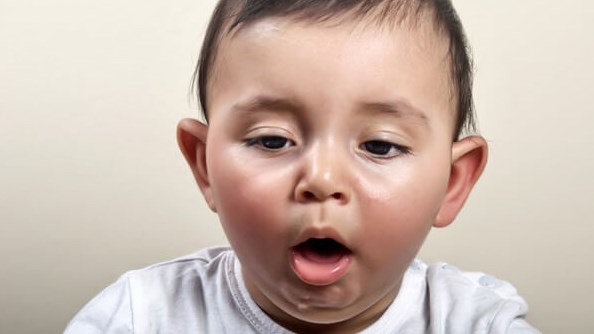Cough And Cold Season Is Here! What To Do And Watch For
&srotate=0)
It’s that time of the year, coughs, colds, and fevers, yikes! Young children get an average of 8 to 10 colds a year and it could be higher if your child is in daycare or school. Did you know that a cold can last 2 weeks or longer?
Cough and colds are caused by viral infections. Your child can get a cold by close contact with a child who has similar symptoms. Be on the lookout for these symptoms:
- “Feeling not so good”
- Runny or stuffy nose
- Cough
- Mild fever on the 1st and 2nd day
- Mild sore throat
Usually, those with colds feel worse in the first few days and gradually get better. It’s important to remember that viruses do not get better with antibiotics and most infections (i.e. colds) in this winter season are caused by viruses. As frustrating as it may be, you can’t make it go away any faster but you can make your child more comfortable with these tips:
Fluids
Ensure your child is drinking plenty of fluids. Staying well-hydrated thins body’s secretions which makes it easier to cough and blow your nose!
Runny Nose
You can suction or blow it. FYI: Antihistamines (i.e. loratadine, cetirizine, etc) do not help the average cold.
Blocked Nose
Use a nasal wash. A saline nose spray or drops loosen up dried mucus which will make it easier to blow or suction your nose. If none of these are available, water will work fine.
Coughing
OTC’s are banned in children under 2 years of age and not recommended in older children. OTC cough and cold medications can have serious side effects in children! Instead of OTC’s, try any of these homemade recipes:
- For children 3 months to 1 year: Give warm and clear fluids (like warm water or apple juice) 1-3 teaspoon as needed. Avoid honey in this age range as it can cause infantile botulism, a serious condition.
- For children 1 year and older: Use honey, ½ – 1 teaspoon, as needed. Honey thins secretions and loosens the cough. Did you know that recent research as shown that honey is better than drugstore cough syrups and reducing the frequency and severity of nighttime coughing? And it’s natural too!
Humidity
Use a cool mist humidifier. Heaters in the home create dry hot air that worsens blocked noses. Moist air keeps nasal mucus from drying up and lubricates the airway. Running a hot shower can also help humidify the air.
Remember that treatment is not always needed! If your child is happy and active, treatment is not always needed. Tylenol and Motrin can help with fever of 101.4 or above, but give this only if your child is uncomfortable.
Watch symptoms closely because some symptoms can be signs of a more serious infection:
Respiratory Syncytial Virus (RSV)
RSV is the most common cause of lower respiratory tract infections in infants and young children. It is one of many viruses that cause colds in children, especially children between 2 to 8 months of age. It is highly contagious and causes symptoms of a cold such as a runny nose, sore throat, and fever. Occasionally, RSV can spread and cause bronchiolitis. Be on the lookout for wheezing or abnormally rapid breathing and see your pediatrician ASAP!
Good news though, you can reduce your child’s chances of contracting RSV:
- Have people wash their hands with warm water and soap before picking up and holding your baby.
- Reduce close contact with people who have runny noses or other illnesses. If you are breastfeeding, continue to do so.
- Try to limit your baby’s sibling(s) from spending time with your infant when they have a cold as much as possible.
- Keep your baby away from crowded areas, such as shopping malls and elevators to avoid close contact with people who may be sick.
- Avoid smoking around your baby. Secondhand smoke can increase your child’s susceptibility to a serious RSV infection.
Print off this handy article and keep as a reference for when your child has cold symptoms. If your child is experiencing more serious cold symptoms, HSNT can help! Call our medical center for an appointment with our Pediatrician today!